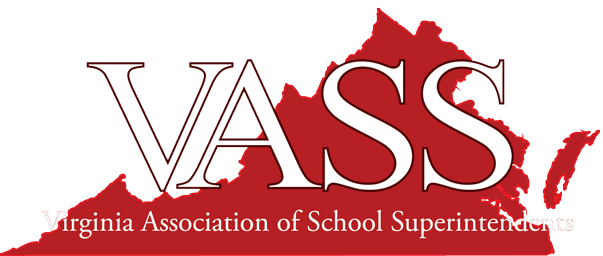The COVID-19 pandemic has challenged schooling within the Commonwealth of Virginia as perhaps no other event. During this time, VASS has been and remains committed to seeking positive changes in public education and fostering what is best for students and staff in the Commonwealth of Virginia.
There are certain fundamental principles that are required in supporting proposed legislation. They are:
- All mandates passed by the General Assembly and required by the Virginia Board of Education need to be fully funded.
- Local school boards should have primary authority in the implementation of these mandates and how resources associated with mandates from State Government are utilized at the local level.
Equity of Opportunity for All Virginia Learners: The COVID-19 crisis has demonstrated the inherent inequities among student groups, schools, and school divisions in providing educational services to children in the Commonwealth.
- The Support Staff Cap was implemented during the Great Recession as a means of saving the Commonwealth needed funds to weather that crisis and it has remained in place since that point. The Virginia Board of Education has prescribed in the Standards of Quality that the Support Cap be removed. Now that the Commonwealth is seeing a record increase in funding, it is time to fully remove the Support Cap to the benefit of students and teachers. VASS recommends removing the cap, but would support this being done in phases if necessary.
- SOQ staffing requirements by the State Board and contained in the revised SOAs must be accompanied by appropriate state funding, as well as staffing flexibility when qualified applicants cannot be found to fill these added positions.
- Positions identified in the Standards of Quality should be funded by function (i.e., curriculum development, instructional support, instructional technology, school leadership, student support and counseling) rather than individual position title.
State Budget: School Divisions have received significant federal funds in response to the COVID-19 pandemic. However, these funds are restricted in their use and obligation time frame. State funds remain a critical factor in providing educational services to students now and in the future.
- The 2022-2024 formula-based re-benchmarking should be maintained without any negative changes for the biennium.
- School divisions should be held harmless for the 2022-2024 biennium in terms of both ADM (Average Daily Membership) and LCI (Local Composite Index) changes regarding their impact on Basic Aid.
- It is essential that additional state funds for broadband/internet access be provided. There is a need for a consistent source for these funds to be part of the State Budget. This will allow for funding to be provided in an on-going manner and be used for students, staff and school-based needs.
- Research has shown that the condition of school facilities impacts both student outcomes and teacher attitudes. State funding for renovation and construction of school facilities is vital if schools are to better manage critical learning needs and changing student populations.
Shortage of Qualified Teachers: The Pandemic crisis has magnified the teacher shortage issue in terms of the number of staff and the need to provide greater flexibility to what teachers can and cannot teach.
- A multi-step plan of the next two biennium budgets to raise teacher salaries commensurate with Virginia’s National income ranking of 12th (JLARC) is needed. Virginia’s Average Teacher Salary of $54,986 is ranked 32nd in the Nation. The average salary would be $67,049 (NEA) if Virginia had a National ranking of 12th.
- Teacher licensure requirements should immediately be made more flexible on a statewide basis to enhance the teacher pipeline and address the teacher shortage issue.
- The possible negative impact that the Virginia Retirement System hybrid program has on teacher retention should be addressed.
Student/Staff Social and Emotional Needs: The General Assembly and the State Board have identified the importance of providing added social and emotional supports for students in order to reduce student discipline problems, school violence and the stress students face in a changing world. The importance of providing for these needs has only been strengthened by the Pandemic crisis.
- The General Assembly and the State Board should provide added social and emotional supports for both students and school staff. These supports would help in reducing student stress and teacher burnout caused by an ever-changing world.
- The General Assembly should provide school divisions with the additional funding needed to implement proven methods of preventing and addressing misbehaviors that lead to suspension and expulsion (i.e., VTSS, Restorative Justice, Regional Programs, Virtual Services, and community-based/wrap-around services).
- The General Assembly should provide school divisions with additional funding for local and regional alternative education programs so that alternative education programs are available for elementary and secondary students in every school division.
- Funding SOQ positions by function, instead of by title/licensure, is critical for school divisions to hire staff appropriate to address the social and emotional needs of students.
Assessment and Accountability Requirements of the Standards of Accreditation: Superintendents have lobbied for some time concerning the need to reduce or eliminate SOL proficiency tests for accreditation purposes and the determination of growth. An accurate system of determining growth from September to June will more effectively reflect the work that educators are doing in a given year.
- Accountability methodologies that recognize student growth, in lieu of seat time and attendance, should be defined and used for accreditation.
- Accountability indicators should be closely aligned with the Profile of a Virginia Graduate.
- Accountability indicators should include inputs as well as outcomes.
- Student growth should be incorporated as a primary means of assessing student performance for accreditation, using tools that inform instruction and that are designed to measure growth rather than using Standards of Learning tests as proxies for growth.
